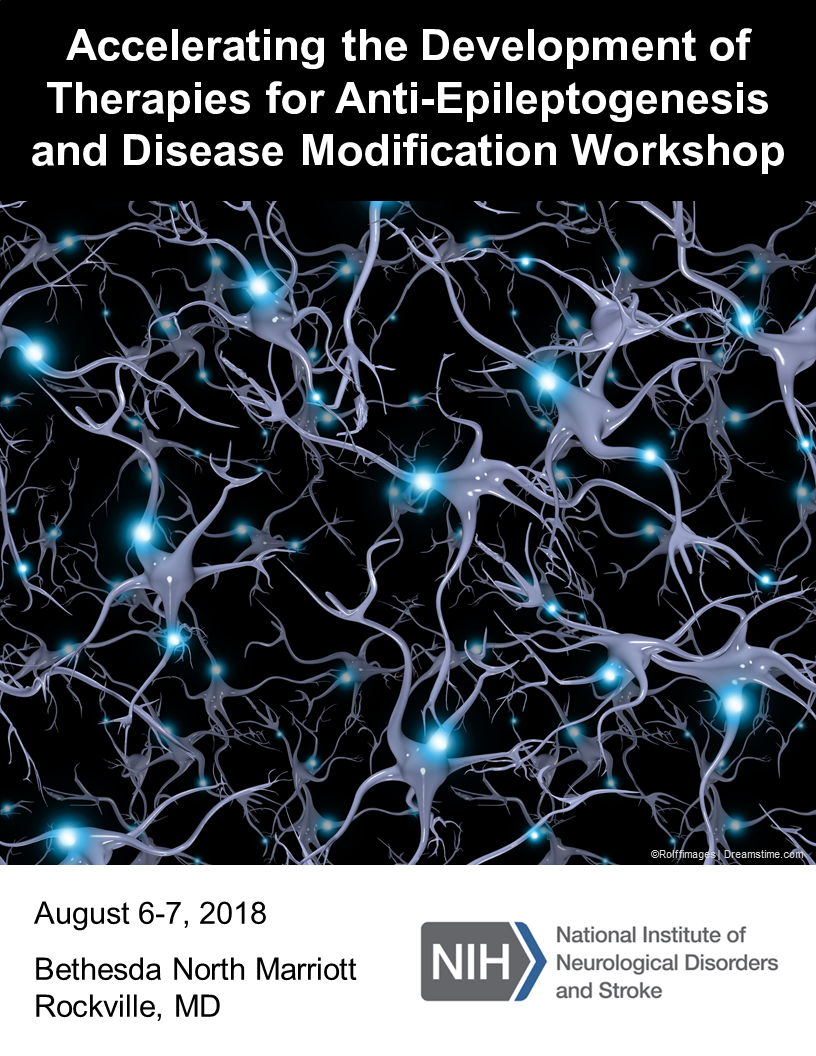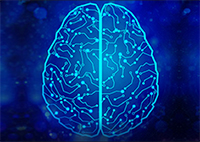Focus On Epilepsy Research

NINDS Program Description
The epilepsies are a set of disorders characterized by recurring seizures, or disturbances in the electrical activity of the brain. Epilepsy affects people of all ages, from infants to the aged, and can result from many causes, including genetic variations, illness, head injury, or abnormal brain development. NIH/NINDS and its community-based research partners are dedicated to finding cures for the epilepsies and/or preventing epilepsy in individuals at risk for seizures.
Featured NINDS Epilepsy Research Initiatives
The NINDS established the Centers Without Walls program in 2010 to rapidly advance epilepsy research through promoting interdisciplinary, collaborative research. Four centers have been funded:
 The Epilepsy 4000 (Epi4K) collaborative has examined genetic data from 4,000 individuals in order to understand the genes underlying epilepsy. See an NIH news release about the center.
The Epilepsy 4000 (Epi4K) collaborative has examined genetic data from 4,000 individuals in order to understand the genes underlying epilepsy. See an NIH news release about the center.
 The Center for SUDEP Research (CSR) brings together extensive expertise to understand Sudden Unexplained Death in Epilepsy. See an NIH news release about the center.
The Center for SUDEP Research (CSR) brings together extensive expertise to understand Sudden Unexplained Death in Epilepsy. See an NIH news release about the center.
 The Epilepsy Bioinformatics Study for Antiepileptogenic Therapy (EpiBiosS4Rx) will use studies of animals and patients with traumatic brain injury (TBI) leading to post-traumatic epilepsy (PTE) in order to develop future clinical trials of epilepsy prevention therapies.
The Epilepsy Bioinformatics Study for Antiepileptogenic Therapy (EpiBiosS4Rx) will use studies of animals and patients with traumatic brain injury (TBI) leading to post-traumatic epilepsy (PTE) in order to develop future clinical trials of epilepsy prevention therapies.
 The Channelopathy-Associated Epilepsy Research Center (CAERC) will combine high-throughput technologies and high-content model systems to investigate the functional consequences of genetic variants in channelopathy-associated epilepsy.
The Channelopathy-Associated Epilepsy Research Center (CAERC) will combine high-throughput technologies and high-content model systems to investigate the functional consequences of genetic variants in channelopathy-associated epilepsy.
 The Epilepsy Multiplatform Variant Prediction (EpiMVP) Center Without Walls will develop a modular, highly integrated platform approach to accelerate determination of the functional, pharmacological, neuronal network and whole animal consequences of genetic variants among a range of clinical epilepsy types.
The Epilepsy Multiplatform Variant Prediction (EpiMVP) Center Without Walls will develop a modular, highly integrated platform approach to accelerate determination of the functional, pharmacological, neuronal network and whole animal consequences of genetic variants among a range of clinical epilepsy types.
Estimates of Funding for Various Research, Condition, and Disease Categories
| Research/Disease Areas* | FY 2017 (Actual) |
FY 2018 (Actual) |
FY 2019 (Actual) |
FY 2020 Estimated |
|---|---|---|---|---|
| Epilepsy | $154 | $184 | $188 | $203 |
Additional funding information on epilepsy research projects funded by the ICARE members, including federal and nonprofit organizations can be accessed at the Interagency Collaborative to Advance Research in Epilepsy Research Portfolio.
*Dollars in millions and rounded
Proceedings & Outcomes
Upcoming Meetings
Curing the Epilepsies 2020: Setting Research Priorities
Postponed until January 4-6, 2021
More information to follow. Please visit NIH Guidance on Travel and Meetings.

The NINDS invites investigators and individuals interested in finding cures for the epilepsies to convene and participate in a forum and discussion of the progress made in understanding the mechanisms of the epilepsies, as well as the inroads made towards potential cures. A main outcome and priority of the meeting will be the evaluation and updating of the Epilepsy Research Benchmarks.
Outcomes and Summaries of Previous Meetings
Accelerating the Development of Therapies for Anti-Epileptogenesis and Disease Modification
 The “Accelerating the Development of Therapies for Anti-Epileptogenesis and Disease Modification” workshop, on August 6-7, 2018, brought together experts in the field of epilepsy to optimize and accelerate the development of therapies for anti-epileptogenesis and disease-modification in the epilepsies.
The “Accelerating the Development of Therapies for Anti-Epileptogenesis and Disease Modification” workshop, on August 6-7, 2018, brought together experts in the field of epilepsy to optimize and accelerate the development of therapies for anti-epileptogenesis and disease-modification in the epilepsies.
Benchmarks for Epilepsy Research
- 2020 Benchmarks for Epilepsy Research
- 2020 Editorial: The Benchmarks: Progress and Emerging Priorities in Epilepsy Research
- Epilepsy Benchmarks Area I: Understanding the Causes of the Epilepsies and Epilepsy-Related Neurologic, Psychiatric, and Somatic Conditions
- Epilepsy Benchmarks Area II: Prevent Epilepsy and Its Progression
- Epilepsy Benchmarks Area III: Improved Treatment Options for Controlling Seizures and Epilepsy-Related Conditions Without Side Effects
- Epilepsy Benchmarks Area IV: Limit or Prevent Adverse Consequence of Seizures and Their Treatment Across the Life Span
- 2014 Benchmarks for Epilepsy Research
- Epilepsy Research Benchmarks Progress Update 2007-2009
- 2007 Epilepsy Research Benchmarks
Resources and Tools
This resource contains public and non-confidential chemical structures and biological data for compounds which have been screened for efficacy and toxicity in animal models of epilepsy and related seizure disorders as part of the Epilepsy Therapy Screening Program (ETSP) at the National Institute of Neurological Disorders and Stroke.
This resource contains public and non-confidential chemical structures and biological data for compounds which have been screened for efficacy and toxicity in animal models of epilepsy and related seizure disorders as part of the Epilepsy Therapy Screening Program (ETSP) at the National Institute of Neurological Disorders and Stroke.
The NINDS epilepsy common data elements provide data standards for clinical research in order to improve data quality and facilitate comparison and combination of data across studies.
ICARE provides an interagency forum for sharing information about ongoing and planned epilepsy research activities.
This is a set of resources by the American Epilepsy Society to facilitate basic epilepsy research.
This is a set of resources by the American Epilepsy Society for clinician scientists and clinical researchers.
The ERC provides information about grant and funding opportunities from non-profit and government organizations focused on epilepsy related research.










